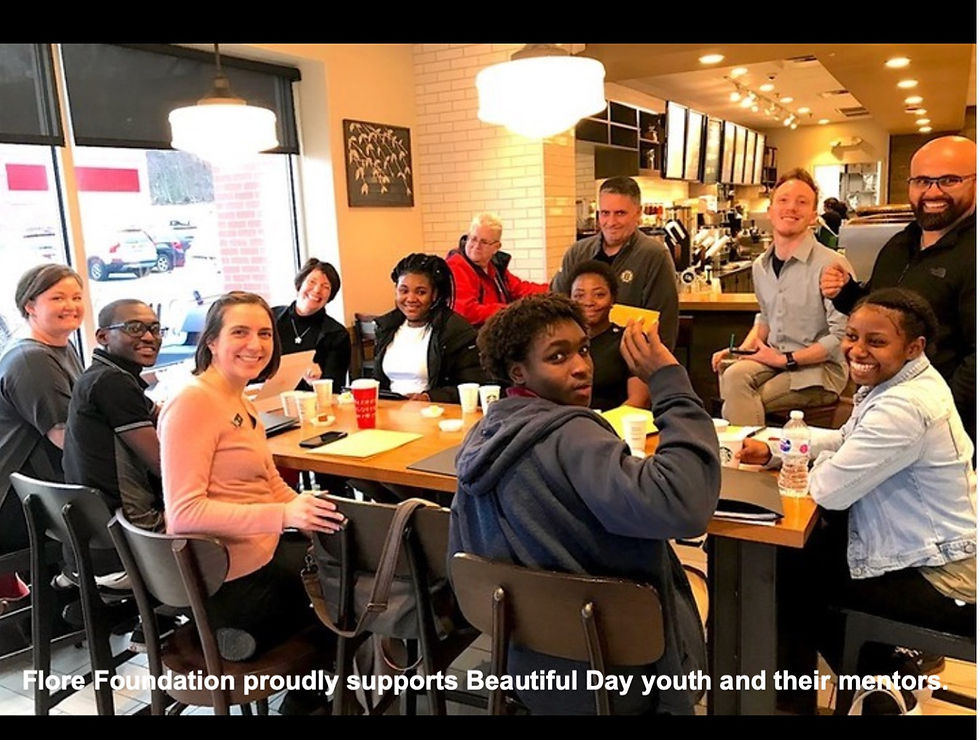Corporate Citizenship Permeates Lancaster
- Veena
- Oct 17, 2019
- 4 min read
This weekend I asked my children to select a book for bedtime. They chose “Who Was Milton Hershey?” by James Buckley Jr; part of the “Who Was, Who Is?” series that my kids adore. They have learned a great deal about historical events and famous people through these dense works of non-fiction filled with detailed facts. I have to admit I was skeptical about this particular story – what I assumed was merely a biography of yet another extremely wealthy man. I quickly learned I was incredibly wrong.

Together we read about a great philanthropist and inventor from Pennsylvania, who founded a social enterprise that began with the Lancaster Caramel Company. Hershey’s mother’s Mennonite heritage likely influenced his choice to incorporate into his business model workforce benefits that improved the standard of living for his employees. He eventually replicated this paradigm of corporate citizenship in Cuba at a sister facility that produced sugar for the chocolate he manufactured in Pennsylvania. Economic development was at the core of his business, a corporation that remains a leader in the confectioner industry globally. Hershey’s philanthropic endeavors followed his success, establishing a school for orphan boys and later a hospital. This story of Milton Hershey dating back over a hundred years portrays the social impact ethos embedded in the culture across the region.
A Culture of Corporate Citizenship
Much to my amazement the small, vibrant City of Lancaster is home to so many companies focused on impact in addition to profitability. This value described as corporate citizenship is defined in the 2018 Deloitte Global Human Capital Trends report as “a company’s ability to do social good and account for its actions—both externally, among customers, communities, and society, and internally, among employees and corporate stakeholders”[1]. In Lancaster many of these businesses align with Flore Foundation’s mission to support refugees seeking economic independence. These enterprises develop objectives to tackle challenges refugees face as new Americans. Whether it be teaching English language skills, building a network, strengthening civic ties, providing a living wage or a sense of value, social enterprises in Lancaster afford solutions to impediments refugees experience.
What is it that drives Lancaster’s social objectives? Milton Hershey’s narrative as a social entrepreneur and philanthropist illustrates values of corporate citizenship embedded in the region. Locals believe that Mennonite history ingrained throughout their society – experiences of persecution and pilgrimage – influence business structure. Mennonite traditions and duty to serve permeate through culture in Lancaster, a philosophy that welcomes those with a similar plight. Refugees in Lancaster suffer backlash at times; however, intolerance is not accepted and there is much local pride in receiving others into the community. Thus, in September Lancaster earned the “certified welcoming” designation by Atlanta-based, Welcoming America.
Social Entrepreneurs of Today
After learning about the prominence of social entrepreneurship in Lancaster, I connected with members of the community to find out how Flore Foundation might support local these businesses. I was recently introduced to several impressive business owners in the area. Mustafa, a refugee from Somalia, created Bridge to narrow the chasm between local people and those new to Lancaster, while providing economic opportunity for refugee families. In doing so, he developed an innovative service around sharing a meal with a neighbor. These experiences are so popular they are booked months in advance. Mustafa connects people, developing a forum to exchange traditions, celebrate differences and build community.

Another business in Lancaster is run by a Mennonite family who hires and trains refugees to bake Dutch stroopwafeles. Stroopies’owner, Jennie Goff, ephasizes the company’s dedication to helping refugees attain economic independence with the hope that some of them will implement newly-learned skills to achieve their dreams. Stroopies model focuses on selling in Lancaster and in small stores in a variety of locations as well as online. Much of their revenue comes during the holiday season, where they take advantage of the increasingly popular German Christmas markets and opportunities for gift-giving. Look out for Stroopies in your community – they are a delicious treat!
Church World Service (CWS), the resettlement organization in Lancaster, established their own social enterprise, a language translation and interpretation business called Language Beyond Boarders(LBB). This organization is the brainchild of a refugee, Amer, who came to the United States in 2010. He shared his experience with me of migrating as a highly educated individual. Yet he is unable to practice in his field, which initially left him feeling hollow. By developing LBB, he discovered a different way to bring value to his new community and believes LBB produces “meaningful connections” by overcoming language barriers. Refugees participating in this profession expand their networks, while removing communication hurdles.
Lancaster affords an example of the societal and economic benefits in places open to migration. Entrepreneurs like Milton Hershey incorporated concepts of corporate citizenship in their business models over a hundred years ago and today’s small businesses in Lancaster continue the practice. Flore Foundation is honored to share these stories and recognize accomplishments of these social entrepreneurs. We hope business owners everywhere will be inspired to include social impact elements in their companies.
[1]Agarwal, Dimple, et al. “The Rise of the Social Enterprise.” Deloitte Insite: 2018 Deloitte Global Human Capital Trends, 2018, https://www2.deloitte.com/content/dam/insights/us/articles/HCTrends2018/2018-HCtrends_Rise-of-the-social-enterprise.pdf.








Comments